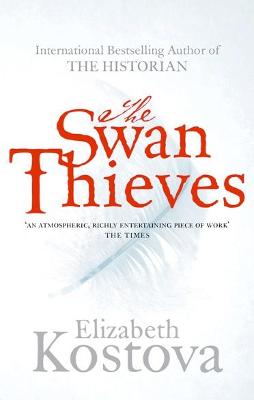Reviewed by empressbrooke on
I was genuinely interested in all the characters and their stories, and just like in The Historian, Kostova used her powerful descriptive ability to bring things to life - rather than the Eastern European cities that popped out of The Historian's pages, The Swan Thieves is full of descriptions of paintings and sketches that don't need any visual illustration for me to picture them in my mind.
The author could have fleshed out the ending encounter between the main character and his patient a bit more; endings seem to be Kostova's weakness, but this book's ending was far and away much better than the strange letdown of The Historian's closure.
Definitely recommended, and I already look forward to the author's next book.
Reading updates
- Started reading
- 28 February, 2010: Finished reading
- 28 February, 2010: Reviewed
